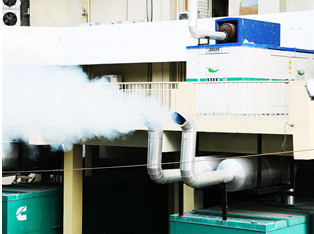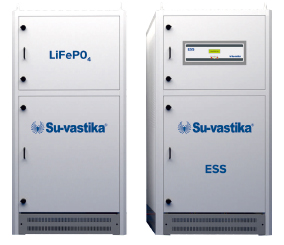Why Diesel Generators unsuitable for individuals and businesses?
Previously, generators were used as a backup energy source in workplaces and homes. Their use, however, has recently declined significantly. The demand for smaller generators has already been met by UPS/inverters. Larger generators should be replaced immediately with heavy-duty UPS/inverters.
Here are the reasons for this change:-
Manual start causes delays and interruptions
Most generators require a manual start, which causes work delays and interruptions. It is extremely inconvenient to lose power in the middle of a critical presentation or while attempting to complete a shipment.
High operating expenses
Oil (kerosene, gasoline, and diesel) and natural gas are used to power generators. Because of the rising cost of fossil fuels, its operating costs rise, making it a less economically viable option.
ESS has a longer life expectancy
The ESS has a 50-year shelf life versus the diesel generator’s 10-year lifespan. Even their battery can last between 7 and 10 years, resulting in significant operational cost savings.
Environmental pollution
Generators run on fossil fuels, so you must always have fuel on hand to keep the fuel tank at optimal. As a result, they need more storage space for fossil fuels. Because fossil fuels are flammable, they always pose a fire risk.
There is a need for fuel storage space
Generators run on fossil fuels, so you must always have fuel on hand to keep the fuel tank at optimal. As a result, they need more storage space for fossil fuels. Because fossil fuels are flammable, they always pose a fire risk.
Maintenance is costly
Generators are powered by smaller components that must be serviced on a regular basis. Its parts corrode when run on gas, reducing performance. As a result, old worn-out parts must be replaced on a regular basis. Furthermore, the cost of upkeep is prohibitively expensive due to recurring malfunctioning and regular cleaning to keep the unit in peak operating condition. Furthermore, the moving parts in a generator limit its lifespan to ten years at most.

LiFePO4 technology is an industry-tested and proven battery technology. People have sought alternative solutions as a result of prolonged power outages. With the advancement of technology over the years, UPS based on LifePO4-based technology has emerged as a far superior alternative to a generator.

There will be no interruption because power will be automatically supplied to the AC load.
The term “research” refers to the process of conducting research. At the same time, it charges the batteries, which store the energy as direct current (DC). In the event of a power outage, a UPS draws DC stored in batteries and converts it to AC power. When this happens, a static switch stops the battery from charging and the inverter starts supplying the stored battery power to the AC load.This quick supply of power to the main reduces interruptions and normal workflow.
Advanced static switches in heavy UPS systems are so efficient and responsive that switching time is reduced to a bare minimum. As a result, computers and other electrical appliances do not shut down unexpectedly or lose data.
Conclusion
Following the success of UPS in the small generator market, the next big thing on the horizon is a high-tech heavy-duty UPS/inverter. With rising fuel costs, now is the time to replace large generators used in offices, factories, and apartment complexes with heavy-duty UPS.
You can also refer www.invertekenergy.com for more information


